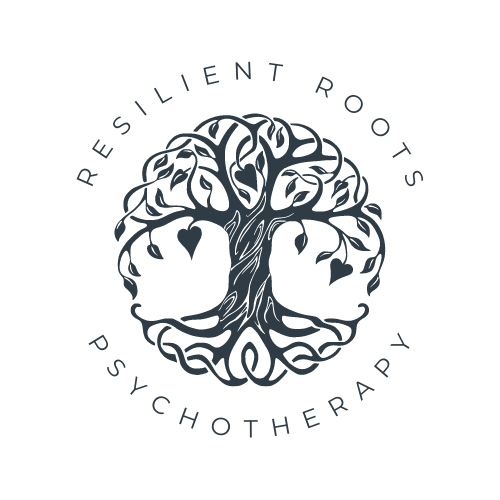break free from worry.
Therapy for Anxiety
It's normal to experience anxiety in a world that demands so much of us.
IF ANY OF THE FOLLOWING SOUND FAMILIAR,
YOU’RE NOT ALONE:
You feel paralyzed by the fear of making the wrong decision, and it leaves you feeling stuck and unsure of your next move;
You doubt your own abilities and constantly compare yourself to others, which is a source of stress and self-doubt;
You have a noble intention of making others happy, but it’s overwhelming and leads to burnout when it feels like everyone's needs come before your own;
You struggle to set boundaries because you fear disappointing or upsetting people.
You feel pressure to be productive all the time to keep your mind occupied or to prove that you have worth.
Achieving a work/life balance seems impossible, especially when there's always something else that needs to be done;
You feel frustrated and exhausted when you try to fall asleep, but your mind keeps racing with worries and anxieties;
The weight of anxiety feels heavy and all-consuming, making it seem impossible to gain control of.
Let’s talk about…
People-pleasing
Productivity guilt
Future-tripping (fixating on future events that may not happen)
Catastrophizing (imagining the worst-case scenario)
Boundaries
Relationships, attachment styles, financial stressors, imposter syndrome, self-esteem, burnout, parenting, health anxiety, trauma - and anything else that causes you to experience anxiety.
It may feel impossible now, but you can feel in control
of your thoughts.
You can feel confident in yourself, your decisions,
and your relationships.
You can live a life that isn’t ruled by anxiety.
You don't have to go through this alone.
Therapy for anxiety can help you:
Free yourself from constant worry and reclaim your peace of mind;
Uncover the root causes of your anxiety, gaining clarity and understanding of why you think, feel, and behave the way you do;
Cultivate unshakable confidence in yourself and your abilities;
Overcome the obstacles that have been holding you back, allowing you to set healthy boundaries and form meaningful connections;
Develop new, effective strategies for managing stress so that you can fully embrace the present moment.
At the end of the day, I want you to know:
Anxiety has served a purpose in your life. It’s allowed you to prepare for the worst (and has prevented you from hoping for the best). Even if you don’t quite know what life without anxiety looks like yet, there’s a future version of you rooting for you on the other side.
What we’ll work on
Imagine a life where you feel…
Confident in your decision-making, with a clear sense of purpose to guide your way;
Self-assured, embracing your uniqueness, and finding contentment within yourself, free from the need for constant comparison or validation from others;
Balanced in your relationships, prioritizing your well-being without the constant fear of letting others down;
In control of your life, finding peace, and managing anxiety with a sense of liberation.
Thoughtful Perspectives on Anxiety
Change is within reach.
Questions?
FAQs
-
Anxiety is a persistent and intense feeling of worry that can last for weeks, months, or even years. It's often accompanied by physical symptoms like heart palpitations, sweating, irritability, poor concentration, and sleep disturbances and can interfere with daily activities and relationships.
-
Stress is a normal reaction to an overwhelming situation, such as deadlines or major life changes. Once the situation has resolved, the stress typically disappears.
-
Everyone is different, so in therapy, our approach to treating your anxiety depends on what works for you. Generally speaking, here are some ways to manage anxiety:
- Deep breathing exercises: Taking slow, deep breaths can help you relax and reduce your heart rate when you’re feeling anxious. I recommend 5-7-5 breathing: inhaling for five seconds, holding your breath for 7 seconds, and exhaling for 5 seconds. Repeat.
- Mindfulness meditation: Mindfulness meditation involves focusing your attention on the present moment and observing your thoughts and feelings without judgment. Meditation has been shown to reduce cortisol (aka the stress hormone) levels, as well as improve focus, concentration, and sleep.
- Regular exercise: Exercise releases endorphins, which can improve your mood and help you feel more relaxed.
- Cognitive-behavioral therapy (CBT): CBT is a type of therapy that helps you identify and change negative thought patterns and behaviors that contribute to anxiety.
To learn more about my approach to therapy, click here.
-
The length of time it takes to see improvement in anxiety symptoms with therapy can vary depending on the severity of your symptoms, the type of therapy you're receiving, and how committed you are to the process.
Often, within a few weeks or months of beginning therapy, many clients begin to notice improvements in their anxiety symptoms. It's crucial to remember that therapy is a process, and it can take longer before you see a noticeable change.
Ultimately, it’s important to be patient with yourself. Change doesn’t happen overnight.





















